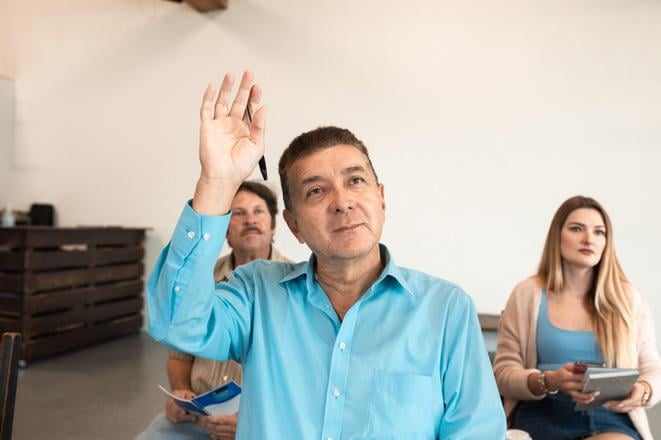In this two-part podcast episode, we delve into the complex world of Slovak citizenship through the personal experiences of two individuals. The first part of the episode introduces the concept of citizenship and features an American, James Stevko, who is seeking Slovak citizenship by descent. His story raises intriguing questions about the intersection of bureaucratic formalities and cultural identity. The second part explores the successful journey of Richard Swales, a British expatriate who, after 18 years in Slovakia, decides to become a Slovak citizen.
Part One: Slovak Citizenship by Descent
The first episode delves into the intricate process of acquiring Slovak citizenship by descent, which is rooted in familial heritage. We are introduced to James Stevko, an American dancer, whose deep connection to Slovak ancestry fuels his desire to obtain citizenship. This process hinges on meticulous genealogical research and the gathering of vital documents that trace his lineage back to Slovakia.
The episode highlights the pivotal role of official documentation, emphasizing the challenges and triumphs faced by those on this path. It underscores the significance of not only understanding and respecting Slovak heritage but also navigating the bureaucratic intricacies of citizenship acquisition. James' quest for citizenship reflects a profound yearning to bridge the gap between familial roots and legal recognition.
Through interviews and narration, the episode provides a poignant portrayal of the emotional and cultural significance attached to Slovak citizenship by descent. The process is a testament to the enduring legacy of familial heritage and the lengths to which individuals are willing to go to honor their roots.
Part Two: Richard Swales' Journey
Richard Swales, originally from Yorkshire, England, found himself in Slovakia in 2002, intending only a six-month stay. However, he decided to make Slovakia his permanent home, establishing a career as an English teacher. Swales' background, marked by familial exposure to international living and a father who later became a Member of Parliament, hinted at a propensity for global experiences. While becoming a Slovak citizen wasn't initially in his plans, changing political landscapes and personal connections ultimately led him to pursue it.
Swales' journey towards Slovak citizenship began in 2012 when he started contemplating the idea. However, he delayed the process until 2018, motivated by uncertainties surrounding Brexit and an evolving political climate. While he acknowledged that his rights as a British citizen were theoretically preserved post-Brexit, global events and stories from other countries served as a reminder of the unforeseeable future. The desire for a sense of security was a driving factor.
Navigating the Process: Swales provides an insightful breakdown of the procedural steps to acquire Slovak citizenship. This includes gathering essential documents from various authorities, such as the tax office, health insurance, and local council. He shares that, while the process was intricate, it reflected his existing status in Slovakia. Swales' business ventures as an English teacher and translator further reinforced his integration into Slovak society.
The episode delves into the practical aspects of acquiring citizenship, shedding light on the bureaucratic maze that candidates must navigate. Swales' experience serves as a valuable resource for those contemplating a similar path, offering guidance on the crucial documents and authorities involved. His entrepreneurial endeavors also illustrate how contributing to the local economy and community can be a powerful means of integration.
The Language and Civic Test: A pivotal part of the naturalization process is the language and civic test. Swales describes the examination as a conversation with government officials, where topics span from Slovak history to contemporary politics. He emphasizes the subjective nature of the test, as there's no defined proficiency level required. Swales also highlights a unique component where candidates are asked to read an article aloud and then provide a written summary without referencing the original text.
This section provides invaluable insights into the testing process, offering prospective candidates a glimpse into what to expect. Swales' experience underscores the importance of a nuanced understanding of Slovak history and contemporary affairs. His description of the language and civic test serves as a realistic portrayal of the challenges and expectations candidates face.
The Impact of Citizenship: Upon gaining citizenship, Swales experienced a tangible shift in his sense of belonging. He notes that while he still identifies as British by nationality, he feels integrated into Slovak society. This transition is exemplified by his newfound ability to participate in local elections and vote for parliamentary representatives. Swales underscores the importance of being part of the political fabric, even as a foreigner who has settled long-term in another country.
The episode delves into the transformative impact of citizenship on one's sense of identity and belonging. Swales' experience resonates with individuals who have undergone a similar transition, illustrating the profound emotional and practical implications of acquiring citizenship. His reflections offer a nuanced perspective on the complex interplay between nationality, cultural identity, and legal recognition.
Reflections on Citizenship: Swales offers valuable perspectives on the nature of citizenship, particularly in the context of an 'old world' country like Slovakia. He acknowledges the subtle distinctions between nationality and citizenship, emphasizing that his primary identity remains tied to his native language. Nevertheless, he appreciates the acknowledgment he receives as a contributing member of Slovak society.
This segment delves into the nuanced nature of citizenship and identity, raising thought-provoking questions about how individuals define themselves within the framework of a new cultural and legal context. Swales' reflections provide valuable insights into the complexities of cultural integration and the evolving nature of one's sense of belonging.
These stories of an American tracing familial roots and a British expatriate's journey towards Slovak citizenship paint a vivid picture of the complexities involved. These personal narratives illustrate that citizenship is a multi-faceted process, influenced by factors ranging from familial heritage to geopolitical events. Ultimately, they reveal that while citizenship provides legal recognition, true belonging is a nuanced sentiment that transcends paperwork.
This episode was created with financial support from the Fund for the Support of the Culture of National Minorities



 The Na Slovensku Aj Po Anglicky podcast with support from fjúžn is starting Season 2 with a two-part episode. (source: Pexels)
The Na Slovensku Aj Po Anglicky podcast with support from fjúžn is starting Season 2 with a two-part episode. (source: Pexels)
